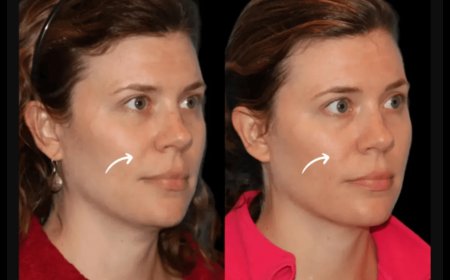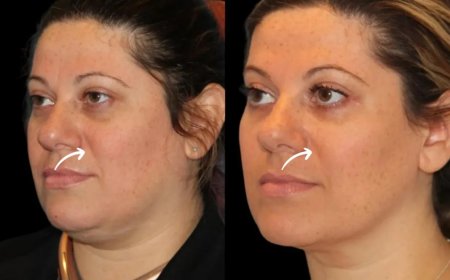Material Range in CNC Machining: Metals, Plastics, and Composites

CNC machining is one of the most versatile and widely used manufacturing processes today, thanks in large part to its compatibility with a broad range of materials. From aerospace-grade metals to high-performance plastics and next-generation composites, CNC technology enables precision manufacturing across virtually every industry.
Understanding the strengths and ideal applications of each material typemetals, plastics, and compositesis essential for engineers, product designers, and manufacturers seeking optimal performance, durability, and cost-efficiency.
Why Material Selection Matters in CNC Machining
Material selection is more than just a cost consideration. It affects everything from:
-
Machinability and cycle time
-
Surface finish and dimensional tolerances
-
Thermal and chemical resistance
-
Strength-to-weight ratio and lifespan
The right choice depends on your industry, the parts function, and the environment in which it will operate. Fortunately, modern CNC machining services offer a wide range of material options, each with unique advantages.
1. Metals in CNC Machining
? Commonly Used Metals:
-
Aluminum: Lightweight, corrosion-resistant, and highly machinableideal for aerospace, automotive, and electronics.
-
Stainless Steel: Durable, heat- and corrosion-resistant, used in medical, food processing, and industrial machinery.
-
Brass: Excellent for fittings and decorative components due to its aesthetic finish and good conductivity.
-
Titanium: High strength-to-weight ratio and biocompatibility, often used in aerospace and medical implants.
-
Carbon Steel: Strong and economical, commonly used in structural and tool applications.
? Benefits of Metals:
-
High structural integrity
-
Excellent mechanical properties
-
Resistance to wear and deformation
-
Wide thermal operating ranges
Metals remain the top choice when strength, durability, and thermal resistance are non-negotiable.
2. Plastics in CNC Machining
? Commonly Used Plastics:
-
ABS: Lightweight, impact-resistant, and widely used in consumer electronics.
-
Nylon: Strong and wear-resistant; used in gears, bushings, and industrial components.
-
POM (Delrin): Low friction and excellent dimensional stabilityperfect for precision parts.
-
Polycarbonate: Transparent, high-impact plastic for lenses, guards, and enclosures.
-
PEEK: High-performance thermoplastic used in aerospace, automotive, and medical devices.
? Benefits of Plastics:
-
Lightweight and corrosion-resistant
-
Lower production costs for prototyping
-
Easier to machine for complex geometries
-
Excellent insulative properties
Plastics are an ideal solution when cost, weight reduction, or chemical resistance are critical factors.
3. Composites in CNC Machining
Composites are materials made from two or more constituent elements with different physical or chemical properties. The result is a material that leverages the best properties of each component.
? Common CNC-Machined Composites:
-
Carbon Fiber-Reinforced Polymers (CFRP): Ultra-lightweight with exceptional tensile strength; used in aerospace and motorsports.
-
Glass-Fiber Composites: A cost-effective alternative to carbon fiber, offering decent strength and electrical insulation.
-
Phenolics and Laminates: Used in circuit boards, tooling plates, and high-heat applications.
? Benefits of Composites:
-
Superior strength-to-weight ratio
-
Corrosion and fatigue resistance
-
Tailored performance properties
-
Excellent for low-volume, high-precision parts
While more challenging to machine than metals or plastics, composites are critical for high-performance engineering applications.
Factors to Consider When Choosing a Material
When selecting between metals, plastics, or composites, consider the following:
-
Application environment: Exposure to chemicals, heat, or load-bearing?
-
Machinability: How complex is the design? Can the material be precisely cut?
-
Budget: High-performance materials come at a premiumare they necessary for the function?
-
Volume and turnaround time: Some materials machine faster than others, affecting lead time.
A reliable CNC machining service provider will help guide you through these considerations based on your technical specifications and budget constraints.
CNC Machining Services That Support a Broad Material Range
Advanced CNC machining services accommodate diverse material requirementsfrom prototype development to full-scale production. Whether youre manufacturing a medical device, automotive part, aerospace component, or consumer product, having access to a wide range of machinable materials ensures:
-
Design flexibility
-
Functional accuracy
-
Material efficiency
-
Superior performance
Experienced service providers often offer material consultation, helping clients select the best material for their specific use case.
Conclusion: The Material Makes the Machined Part
The effectiveness of CNC machining doesnt lie in the machinery aloneit lies in the synergy between the machine and the material. Whether you need the ruggedness of stainless steel, the lightweight properties of carbon fiber, or the versatility of high-performance plastics, modern CNC machining services offer unmatched flexibility and precision.
Choose the right material, and your part wont just be functionalit will be optimized for excellence.














